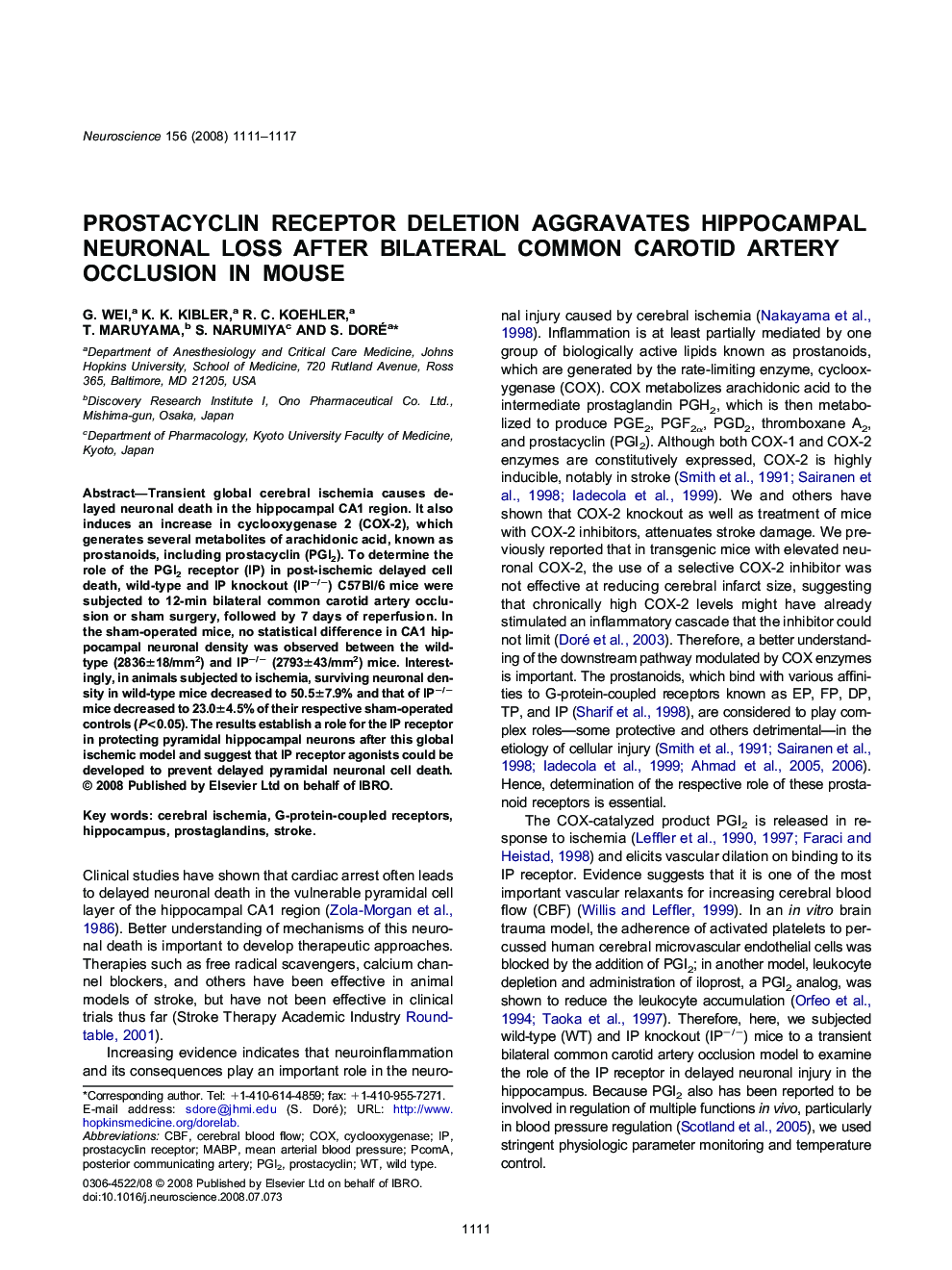| Article ID | Journal | Published Year | Pages | File Type |
|---|---|---|---|---|
| 4341377 | Neuroscience | 2008 | 7 Pages |
Transient global cerebral ischemia causes delayed neuronal death in the hippocampal CA1 region. It also induces an increase in cyclooxygenase 2 (COX-2), which generates several metabolites of arachidonic acid, known as prostanoids, including prostacyclin (PGI2). To determine the role of the PGI2 receptor (IP) in post-ischemic delayed cell death, wild-type and IP knockout (IP−/−) C57Bl/6 mice were subjected to 12-min bilateral common carotid artery occlusion or sham surgery, followed by 7 days of reperfusion. In the sham-operated mice, no statistical difference in CA1 hippocampal neuronal density was observed between the wild-type (2836±18/mm2) and IP−/− (2793±43/mm2) mice. Interestingly, in animals subjected to ischemia, surviving neuronal density in wild-type mice decreased to 50.5±7.9% and that of IP−/− mice decreased to 23.0±4.5% of their respective sham-operated controls (P<0.05). The results establish a role for the IP receptor in protecting pyramidal hippocampal neurons after this global ischemic model and suggest that IP receptor agonists could be developed to prevent delayed pyramidal neuronal cell death.
